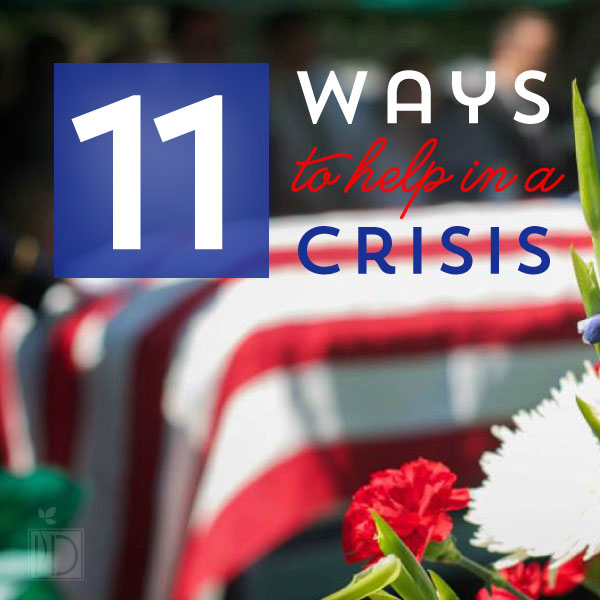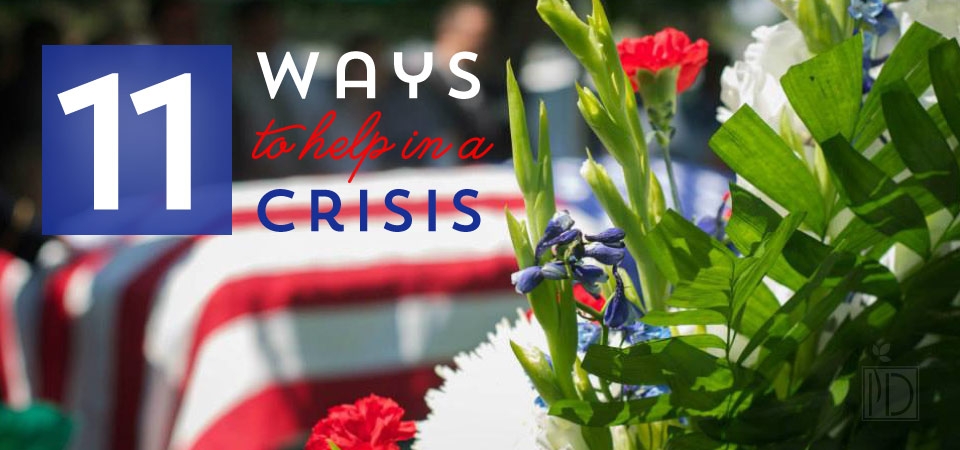 As a military spouse, I have experienced a crisis or two over the years. Even though we are moving into a post-war time, military families still deal with challenges. My definition of crisis is any problem that is pressing enough for someone to believe they must call for help. There will be people who will not be promoted, or who will be retiring early. Diseases or finances can cause a challenge to many families. When I was in Germany, I had three young children, so going to the commissary was a crisis for me sometimes. The response to a crisis is as varied as the people involved in it, but as military spouses we should know that we can support anyone in a crisis.
As a military spouse, I have experienced a crisis or two over the years. Even though we are moving into a post-war time, military families still deal with challenges. My definition of crisis is any problem that is pressing enough for someone to believe they must call for help. There will be people who will not be promoted, or who will be retiring early. Diseases or finances can cause a challenge to many families. When I was in Germany, I had three young children, so going to the commissary was a crisis for me sometimes. The response to a crisis is as varied as the people involved in it, but as military spouses we should know that we can support anyone in a crisis.
Unfortunately, one of the universal crises the military faces is loss of life. Over the years I have gleaned some ideas on how to help other spouses during such a difficult time. My first rule is to act only on official information. Many times there will be rumors, but facts don’t support those rumors.
If there is a confirmed loss in your unit, here are some ideas on how to help the family in crisis.
- Silence. Silence is often the hardest thing to endure yet the best thing you can offer. Offering a shoulder to cry on or simply sitting with a grieving individual can help.
- Provide meals (in disposable containers). I like to use Take Them a Meal, which allows people to coordinate schedules, and it provides other information like food allergies, directions, and phone numbers.
- I will send something to the family that means something to me — a note, a card, a book, or a poem.
- Offer to do chores or run errands. Don’t forget simple things like picking up extra groceries while you are out.
- Provide the name and contact information for the Survivor Outreach Services Coordinator. They know of resources that are in the area.
- Attend any service for the family or offer to stay at the house during the service. I have stayed at the house with another spouse, setting up food, dishes, etc. Unfortunately there are people who will use the announced funeral to rob the house of the deceased so it is nice to have a presence in the home.
- Offer to take care of the children. This can be at night or even a Saturday morning so that the spouse can have some time for self-care.
- Offer to drive or pick up family members that come into town. I have driven families to the airport after the service because it can be so traumatic for the spouse to say good-bye.
- Offer to help with lawn and garden care. I don’t mow lawns but I did coordinate some teenage boys to help mow. It allowed the neighbors to help out in a tangible long-term way.
- Help with moving activities. Most FRGs don’t help with all the packing and loading, like on “Army Wives,” but the military will move the family. Being there to take care of inventory and help in rooms where it is too hard for the spouse to enter can be a huge help.
- Call. Don’t forget to call. Time may pass but people still need to talk. It is okay to use the name of the deceased. The family will appreciate the call.
Remember that you are unique and special. Find what works for you. Trying to do this whole list each time will burn you out. Pick one or two. These are things that have worked for me in the past, yet each crisis is different so use this as a springboard to find your way of helping.
Crises will happen. How you handle them will help you and the person in crisis. You are very important. You are invaluable to your family, so take care of yourself. You are unique and one of a kind, believe in yourself and your ability to help.

